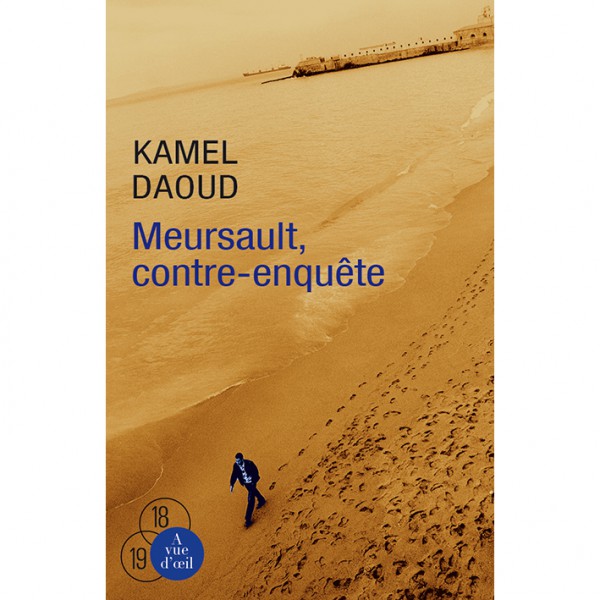Adventures on the Bookshelf is heading off on its summer holidays. Over the next few weeks, we’ll be picking out some recommended reading from our archives to keep you busy on the beach. We’ll be back with new posts from the first Wednesday in September.

posted by Simon Kemp
Last summer, Waterstones bookshops in the UK found themselves with an unlikely bestseller among their holiday beach reading. It was the English translation of the French-language debut novel of an Algerian journalist. What’s more, it was a novel that would make almost no sense to you unless you’d previously read a mid-twentieth-century French philosophical novel by a writer who’s been dead for over fifty years. The novel is Meursault, contre-enquête by Kamel Daoud (translated as The Meursault Investigation), and it’s our choice for the Bookshelf book club.
The novel has caused a great kerfuffle on the French literary scene. It’s been showered with accolades and prizes, including the Prix Goncourt for the best first novel of the year. It has also earned its author an islamist death threat for its outspoken criticism of the role of religion in Algerian life since independence. If you’d like to read a novel in French from outside France, you won’t find one with more impact, culturally and politically, than this one.
Meursault, contre-enquête has a simple, brilliant idea at its heart: what if Albert Camus’s L’Etranger, perhaps the most famous French novel of the last century, was non-fiction? What if it was the autobiography of a real person called Meursault, who really did shoot an Arab man dead on the beach in the 1940s? And what if that Arab man had had a brother…?
Camus’s novel tells us almost nothing about the man Meursault kills, not even his name. Daoud’s novel starts out by setting us straight on that score, sketching a hazy portrait of the dead man through the eyes of the child his brother was, and the memory of the old man he has now become. Haroun, the narrator, starts out by condemning Meursault for leaving his murdered brother’s name out of the story. It looks a little like Daoud the author might be condemning Camus for the same omission. But if you know Camus’s work, you can see there’s already something odd going on. The set-up of Daoud’s novel, as if the reader were being button-holed by an old man in a bar to listen to his story, is the exact same premise of another of Camus’s novels, La Chute. It seems a strange kind of homage in an novel meant as an attack on its subject.
And things are indeed more complicated than they first appear. As the years go by, the ‘investigation’ stagnates, and Algeria changes around Haroun beyond all recognition, Haroun finds himself starting to resemble Meursault in unexpected ways…
This recommendation comes with a few provisos. Meursault contre-enquête, although it’s short, is quite a challenging read, in French or English, so don’t let the ‘investigation’ of the title fool you into thinking you’re in for a page-turning detective story. It’s also not scared of controversy where religion is concerned, although its thoughtful critiques are a world away from the inflammatory provocations of 2015’s most notorious novel about Islam, Michel Houellebecq’s Soumission. And thirdly, as I said at the beginning, there’s no point at all in reading it unless you read L’Etranger first. If you think you can deal with all that, though, you have a remarkable reading experience in store for you.
